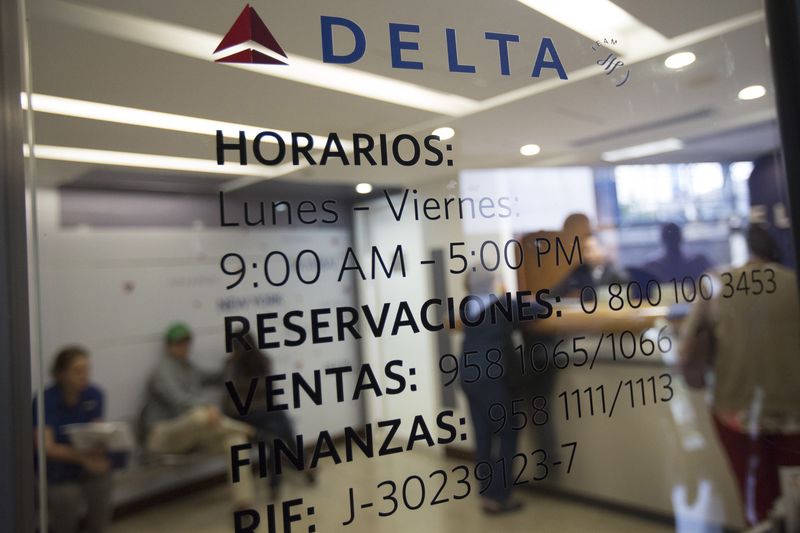This post was originally published on this site
https://i-invdn-com.investing.com/trkd-images/LYNXMPEJ2L0VT_L.jpg
WASHINGTON (Reuters) -The U.S. aviation regulator said on Wednesday it will temporarily cut minimum flight requirements for airlines at congested New York City-area airports and Ronald Reagan Washington National Airport to address summer congestion issues, citing air traffic controller staffing levels.
The Federal Aviation Administration (FAA) agreed to the request of Delta Air Lines (NYSE:DAL) and United Airlines to temporarily return up to 10% slots and flights at New York airports and National with the condition they not be backfilled by other carriers.
Air travelers could face another rough summer as carriers struggle to meet a burgeoning recovery in demand after the pandemic. Passengers and regulators have expressed outrage while airlines said the FAA needed more staffing.
The FAA said the decision will give airlines “the ability to reduce operations during the peak summer travel period, which are likely to be exacerbated by the effects of Air Traffic Controller staffing shortfalls.” Airlines can lose their slots at congested airports if they do not use them at least 80% of the time.
The FAA expects airlines to take actions minimizing impacts on passengers, including operating larger aircraft and ensuring passengers are informed about any possible disruptions.
“It is imperative that aviation stakeholders work collaboratively with the FAA to take proactive measures. We are prepared to do our part,” Delta said in a letter to FAA.
Airlines for America, a trade group representing major U.S airlines, praised the action and said airlines “have been making every effort, including hiring at a rapid pace and reducing schedules, to prioritize smooth operations.” Airlines have already cut about 10% of scheduled flights this spring, the group said, to address performance issues.
The FAA this month will convene a New York airspace summit to discuss potential improvements the nation’s most complex and congested airspace.
The FAA said its staffing levels at the New York Terminal Radar Approach Control remain below targets. Last summer there were 41,498 flights from New York airports where air traffic control staffing was a contributing factor in delays.
The agency said that later this year it will reassign approximately 100 square miles of Newark airspace from to the Philadelphia Terminal Radar Approach Control to address staffing issues.

